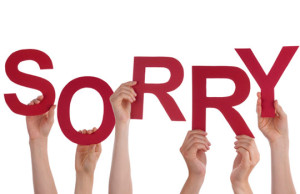 • Homeopathy: patients like it
• Homeopathy: patients like it
Our rapid response boards have been ablaze this week since we published a Head to Head debate on homeopathy.
Many of you have rallied to homeopathy’s defence, agreeing with Peter Fisher of the NHS’s Royal London Hospital for Integrated Medicine, despite a dearth of quality evidence of effectiveness as well as the potential for harm, as sceptic and alternative medicine researcher Edzard Ernst pointed out.
Karyse Day from Swindon posted, “This article omits . . . the most important people in the discussion—the patients—of whom I one.
“I have successfully and exclusively used homeopathy for more than 40 years. I find it insulting and demeaning to have my own experience of homeopathy downgraded to an ‘anecdote’ as do the hundreds of thousands of other patients who regularly use homeopathy.”
Europe’s annual spend on homeopathy is of the order of €1bn—so Day is not alone. But should patient preference trump all else?
Should doctors recommend homeopathy? Vote in our poll.
• Urgent worries about sexual health services
“There is insufficient national coordination to enable local commissioners to work together in an effective way which meets the needs of service users in their area,” the All Party Parliamentary Group on Sexual and Reproductive Health has concluded after a review of sexual health and HIV services in England. “This has to be addressed as a matter of urgency.”
Changes to what were integrated services under the former health secretary Andrew Lansley gave responsibility for some functions to local councils, but the restructuring occurred without setting clear lines of accountability.
“This has led to a lack of proper oversight of the quality and outcomes delivered by commissioners,” the group said.
The government’s announcement last month that it planned to cut £200m from the public health budget in 2015-16, more than 7% of the total, alarmed the group.
 • How to say sorry
• How to say sorry
“It has never been entirely clear what the statutory duty of candour would achieve that the existing professional duty would not,” writes Michael Devlin, head of professional standards and liaison at the Medical Defence Union, in a recent blog post on thebmj.com.
But he’s quick to emphasise that “apologising to patients and those close to them when things go wrong is plainly the right thing to do.” Apologies are acknowledgment of the situation and the beginnings of reconciliation, he says, and he gives five pointers on how to actually say sorry in practice.
Read also our recent column by David Oliver, “The hardest word: managers and leaders should say sorry too.”
Let us know what you think about these or any other issue by sending a rapid response on thebmj.com
Richard Hurley is the features and debates editor, The BMJ.
